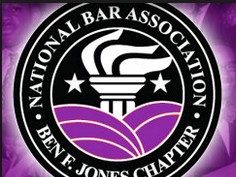
Constitutional Amendment 2 on the November 4 ballot, which deals with the process of appointing state appellate judge, is potentially as transformational as either Amendment 1 (regarding the abortion issue) or Amendment 3 (prohibiting a state income tax), and it has received a good deal of attention, especially of late.
But most of the organized activity has been on the “yes” side of the issue, with numerous public officials and organizations, across the political spectrum, endorsing the amendment and campaigning for it publicly. In brief, Amednment 2 allows for gubernatorial appointment of appellate judges, as at present, but eliminates the current Tennessee Plan’s front-end advisory commission while adding a de facto legislative veto power.
Organized campaign activity against the amendment has been rare, but on Thursday at least one legal body came forth in opposition to Amendment 2.
This was the Ben F. Jones chapter of the National Bar Association, a predominantly African-American group, which expressed itself this way in a public release:
The Ben F. Jones Chapter of the National Bar Association believes that Tennesseans should vote “NO” on Amendment 2, which is on the November 4th, 2014 ballot. The amendment, titled “Tennessee Judicial Selection, Amendment 2” empowers the General Assembly to confirm or reject the governor’s nominations to fill vacancies on the state’s appellate benches, without any input from the public. This is a major change from the utilization of the Judicial Nominating Commission or the current Governor’s Commission for Judicial Appointments, which both allowed and welcomed public input. On its face, the measure appears to be a relatively harmless procedural codification of the arguably ambiguous introductory language of Section 3, Article VI of the Constitution of the State of Tennessee that currently reads, “The judges of the Supreme Court shall be elected by the qualified voters of the state.” It is anything but. This amendment usurps the power of the people of the state to select our judiciary and bestows it entirely upon the Governor and the General Assembly, narrowing the fundamental concept of democracy and eroding the separation of powers.
Although some have compared the proposed judicial process to the federal model, there is a big distinction. The plain language of the Tennessee amendment requires confirmation by both houses of the General Assembly, not just the Senate as is required for federal judicial confirmation. And even with the required approval of one body, the federal process is far from flawless. Judicial appointments in the federal government have reached an historic level of inefficiency according to the National Women’s Law Center. Arming both chambers of the state legislature with veto power over the Governor’s judicial appointment authority could have an even more dramatic effect on judicial efficiency here in Tennessee.
Although proponents of Amendment 2 assert that it keeps politics and big money out of the judicial selection process, it is doubtful that this will be the overall outcome. Delegating the power of appointment to politicians hardly cleanses the process of politics, and political spending will simply be redirected.
It is our view that relinquishing elective power to a partisan legislature does not expand democracy, but contracts it. Without a compelling rationale as to why such radical change is necessary, it is difficult to justify support of the amendment. It is for these reasons that the Ben F. Jones Chapter of the National Bar Association urges Tennesseans to Vote “No” on Amendment 2.